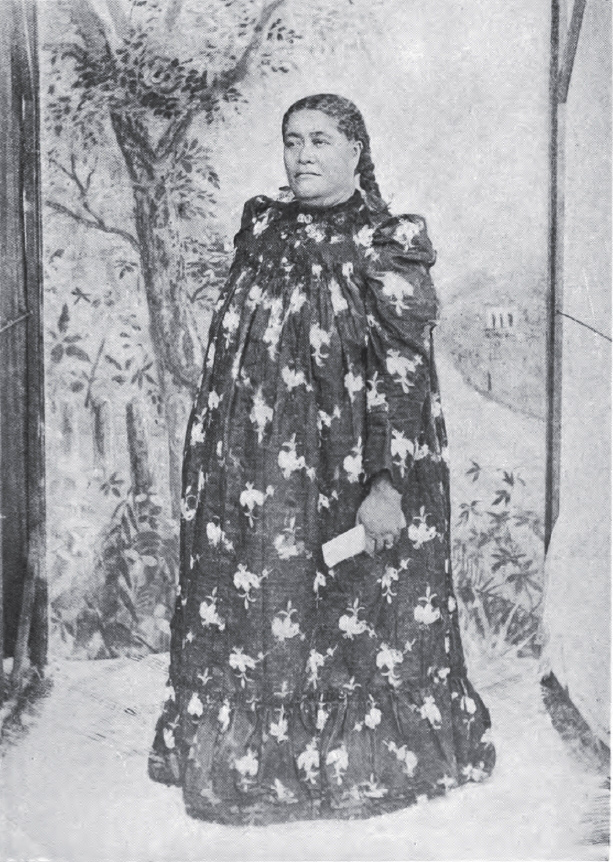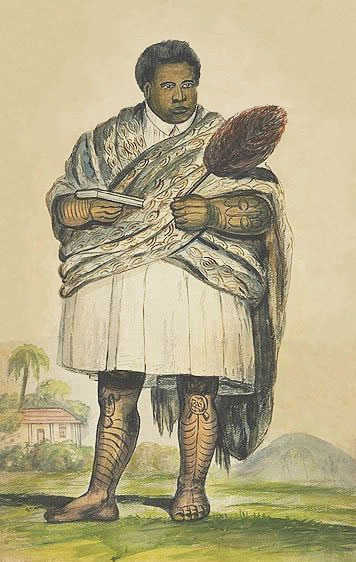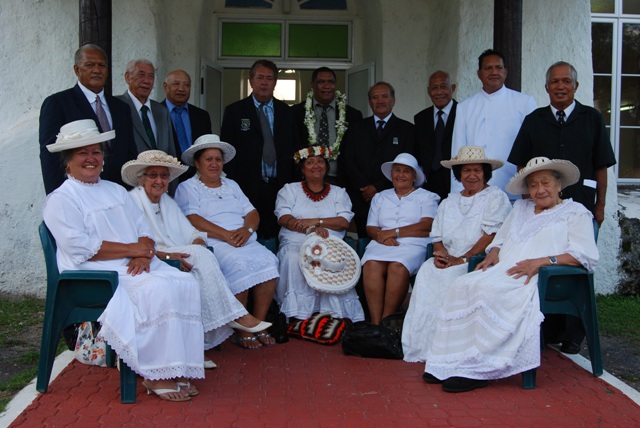Queen Makea Takau

Makea Takau Ariki (1839 - 1911) was a sovereign of the Cook Islands. She was the ariki (queen) of the dynasty Makea Nui (Great Makea), one of the three chiefdoms of the tribe Te Au O Tonga (The mist of the south) on the island of Rarotonga. She succeeded her uncle Makea Abera Ariki in 1871. Her reign lasted forty years during a crucial time in the history of Rarotonga and the Cook Islands. It was under her reign that the Cook Islands became a British protectorate in 1888 before being annexed to New Zealand in 1900.
The Ariki
Each island in the Cook Islands was ruled by a number of ariki (king or queen). Rarotonga had about five or six, and most of the other islands had about three. Each ariki ruled an ivi or ngati (tribe). Beneath each ariki in the social hierarchy were a number of mataiapo and rangatira (minor chiefs) of noble rank.
A chief's control over his people was related to his mana (power), which came not only from his birth but also from his achievements and status, and could be gained or lost. An ariki who lost popularity with his people could also be seen as having a decline in mana, which could have led to his loss of control.
Having a control of tapu (sacred matters) was a powerful weapon for the ariki. For supernatural reasons, certain activities were forbidden and since the ariki had control over what was or was not forbidden, this gave him considerable power. It was the people's strong belief in an ariki's mana and control over all things tapu that allowed them to take control of their people without the need for physical enforcement.

The ariki, mataiapo and rangatira titles are passed down through the family to the present day. Some of the ancient ceremonies and traditions are still being practiced in the Cook Islands.
The House of Ariki
 Was established in 1967 by Prime Minister Albert Henry, shortly after the country obtained self-government from New Zealand. Henry stated that the ariki were the Cook Islands' "royal heritage". The House of Ariki was intended to confer additional legitimacy and strength to the newly self-governing nation, and to help it define its national identity. Henry stated:
"The ariki [and other chiefly ranks] and their tribes are the backbone of all nations in this world. For any nation to allow this backbone to be broken or to disappear would mean that they are relying on a foreign backbone for their survival."
Was established in 1967 by Prime Minister Albert Henry, shortly after the country obtained self-government from New Zealand. Henry stated that the ariki were the Cook Islands' "royal heritage". The House of Ariki was intended to confer additional legitimacy and strength to the newly self-governing nation, and to help it define its national identity. Henry stated:
"The ariki [and other chiefly ranks] and their tribes are the backbone of all nations in this world. For any nation to allow this backbone to be broken or to disappear would mean that they are relying on a foreign backbone for their survival."
Criticism
According to Ron Crocombe and Jon Tikivanotau Jonassen:
"The House of Ariki was created to marginalize the ariki. Most of them had opposed the party that won the election at self-government, so it created and quarantined them in a House with dignity but no power. To marginalize ariki further, that party later created a Koutu Nui of mata'iapo and rangatira (lesser chiefs) many of whom had supported the party."